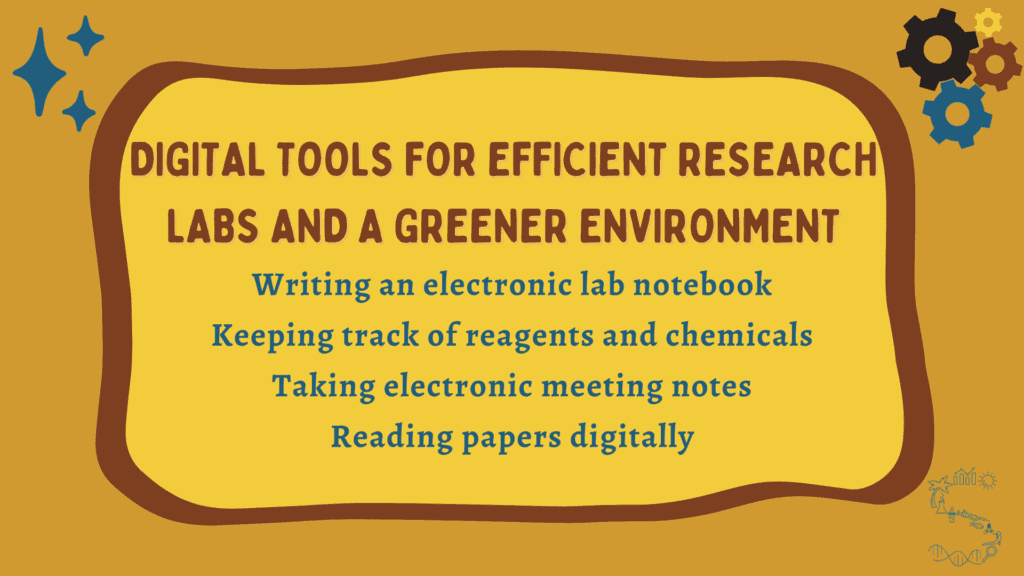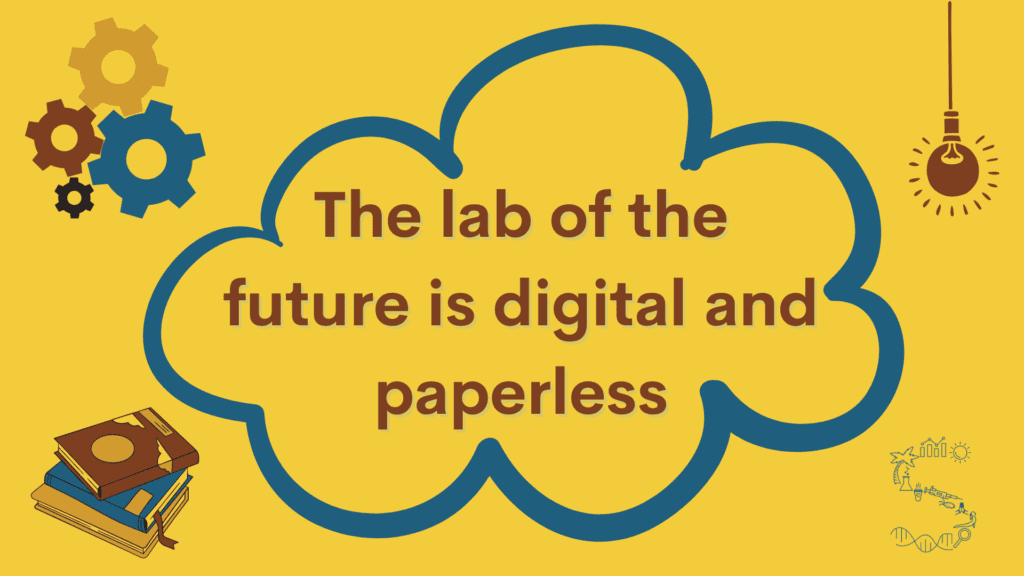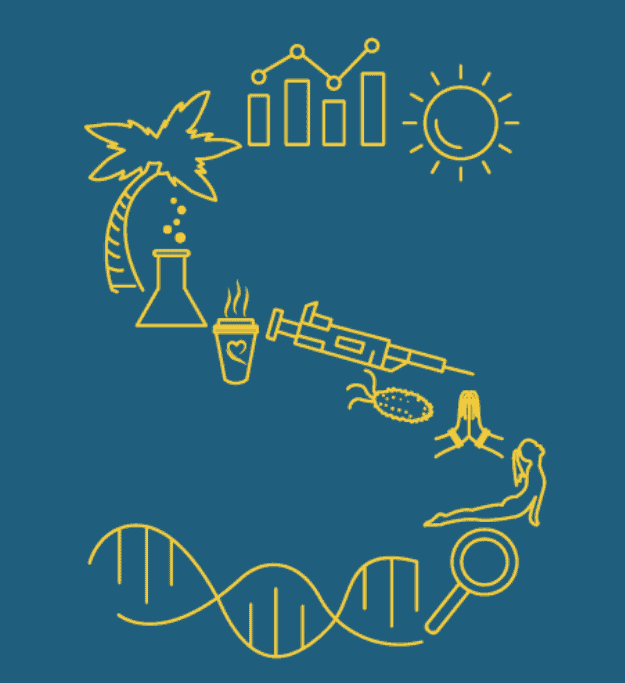Scientists strive at the forefront of human knowledge. They push through the border of what humanity knows to advance technology, health and environmental practices.
But when it comes to their own lab practices, scientists barely ever work on such an advanced level. Outdated research workflows and old-school archiving lead to accumulated stacks of papers, lab books and ordering sheets in many labs.
This is not only a huge burden for the environment but also chaotic when it comes to finding specific information.
The research lab of the future is digital and paperless
I remember from my time in the lab, I wasted a lot of time going through paper stacks trying to find what I’m looking for. It would be a specific protocol I was supposed to reproduce, relevant data from a previous lab member, my notes about a research paper or the name of the reagent that I’d used a hundred times but kept forgetting. I often wished I could just hop on a platform where all the information was stored and that I could easily search.
Unfortunately, the costs of such platforms, the time and effort needed to set them up and sheer unwillingness to change work habits often prevent their implementation in labs.
I argue that by investing the time to set up digital lab management systems, scientists will actually gain time and be more efficient and productive. And this will lead to high-quality research results and both professional and personal satisfaction.
Not only does a paperless scientific life allow you to access your data from anywhere and on any device, but it is also better for the environment and helps collaborations and research transparency. Hence, going digital as a lab-based scientist can modernize your lab, cut costs and improve productivity and scientific output.
4 digitals tools for lab-based scientists
Here, I want to outline a few digital tools to go paperless as a research scientist. Of course, it is pretty much impossible to implement everything at once since digital transformation is a lengthy process. But by taking one step at a time, you will move towards a digital, automated and more efficient lab.
So, let’s look at each step separately.

Writing an electronic lab notebook
One of the most efficient ways to go digital is by starting to write a digital lab book. Several tools and platforms already exist for that and guess what. Yet, as a huge fan of the project management tool Notion, I created the Sunny Digital Lab Book as a template for you to use in Notion.
Since most of your data and files are already digitally anyway, it’s about time to swap paper-based lab books for digital ones. No need to print all your graphs, data and figures anymore just to stick them into your lab book. Instead, keeping your experimental results in one digital place allows you to search through them and always have the data available at your fingertips.
Just as you would reference older entries in your handwritten lab book, in an electronic lab book you can link to other experimental entries and projects. Following those links and better grasp the full picture of your projects.
Another advantage of not having to handwrite your protocol for the umpteenth time: you save time by making digital templates for your experiments. In the Sunny Digital Lab Book, you add your protocol to a database, from which you paste it into your experiments. Within the experiments database, you can still modify the protocol, add additional steps and even sub-tasks that need to be done before or together with the experiment.
When analysing your results and data, an electronic lab book gives you plenty of space and lets you add more thoughts later on. You can add charts, images, tables, sub-folders and even ideas for new experiments linking them to future entries. By visualising and comparing your research results in a digital lab book, you can think more clearly, structure your research projects more logically and plan the next experiments more efficiently.
And when it comes to sharing your project data and experiment results, a digital lab book is definitely the best choice. You can share links to parts of your digital lab book or export them as a PDF and send them over to collaborators or lab members. If you ever leave your lab, you can save your data in whatever format you need and store it together with other electronic lab books. This way, it only eats away digital space while no piles of lab books clutter the lab office.
Keeping track of reagents, chemicals and equipment
When writing your thesis or paper, how annoying was it for you to run around the lab looking for all chemicals and reagents that you were using throughout your projects? I remember I was like a headless chicken trying to find the smallest bottle of that one random chemical.
Instead, I wished I had kept a list of all reagents and machines I used so I didn’t have to stress out at that time.
Enter an electronic lab management system.
By keeping track of the reagents, substrates and equipment you’re using throughout your experiments, you have all your data at hand. This makes paper and thesis writing much easier and keeps your experimental protocols transparent and open. Gladly, the Sunny Digital Lab Book comes with databases for reagents and pieces of equipment that you use in your experiments. Each item is also connected to the protocol database. So, when preparing your experiment, you will remember to book the required machines in advance and make sure all the necessary chemicals are in stock.
Plus, having an overview of the status of your reagents and chemicals helps you in the ordering process. With efficient organisation, you will never run out of your substrate again!
Taking electronic meeting notes
As a Sunny Scientist, you’re probably very capable of taking meaningful and organised notes. These could entail notes from a meeting with your supervisor, thoughts about a research paper, ideas you had on your way to work, etc.
I guess we all agree on how important it is to take notes and write everything down. Even though you think you’ll remember, you won’t!
So, instead of having paper notes all over the place and being unable to locate that one thing that you KNOW, you wrote down, why not save your notes digitally? It’s a lot easier to look for information and stay organised by linking notes to each other.
Again, you can always share your notes with others, refer to them at any time and keep editing them. I know that without my note-taking system, most of my work would be way more chaotic and of lower quality.
For quick note-taking, I created the free Sunny Intray for Notion; a template for you to collect your ideas, notes, web articles or tasks from meetings or emails. Get started with Notion with this free template.
Reading papers digitally
Lab-based scientists live off research studies by other scientists. This involves reading a lot of research publications, literature reviews, commentaries and case studies. And of course, you might have a few key papers essential for your project that you read over and over again always finding and highlighting important sections.
But there are also many papers and articles that you want to or should read. No need to print these just so you can add them to your “to read” stack. A digital library is perfect to maintain an ever-growing reading list, reduce paper clutter and protect the environment.
And what about those papers that you have read and that are relevant to your research? You want to store them together with your notes and thoughts and information about them. When needed, you can always go back to your library and retrieve the information.
To help you stay up-to-date with the research in your field, I created the Sunny Digital Publication Library. This is also a Notion template helping you organise research publications, adding your own notes to them and linking them to other papers, research journals and your experiments.
By keeping a digital paper library, you can read publications wherever and whenever and add your thoughts whenever an idea strikes you. A digital paper archive also allows you to only save the interesting part of a paper instead of the whole article. This will let you focus on what is important in your research so the entire process remains less overwhelming.
A paperless environment in research labs
I am convinced that the intelligent lab of the future is a digital one. With the digital advancements of the last years, it’s only about time that research labs follow the digital transformation and go paperless too. I understand that it might not be sustainable to work completely digitally in a research lab. But you can try implementing a few digital tools and do your part.

Here, I gave you a few ideas on how to better organise a digital research lab environment. From saving your research papers and experimental data electronically to taking digital notes during meetings and brainstorming sessions; there are many tools to reduce your paper consumption.
Is there anything else that you or your lab members do to swap paper sheets for a digital platform? Which steps do you take to cut down on paper and help protect the environment?
Let us know in the comments below.

One Response